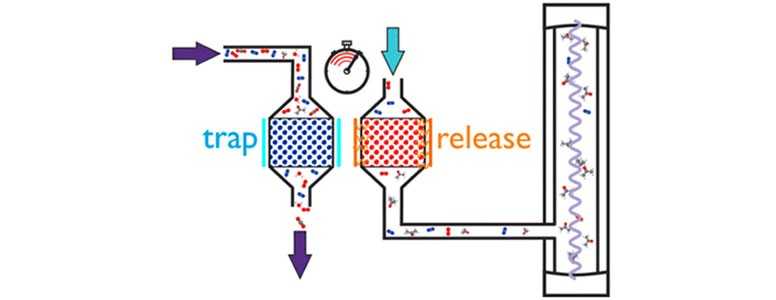The University of Oxford is developing a portable device, similar to a breathalyser, which could be used to diagnose type 1 diabetes.
Previous research has shown that exhaled breath with elevated levels of acetone, a chemical compound, is strongly linked to untreated type 1 diabetes. But detecting this concentration is challenging, so Oxford researchers wanted to make the process easier.
Their new non-invasive device could be used to diagnose type 1 diabetes with an easy test and the practicality of the device means it could be re-used many times.
The device is a work-in-progress developed by head researcher Robert Peverall and his team at the university’s department of Chemistry, Physical and Theoretical Chemistry Laboratory.
In the online journal Analytical Chemistry, Peverall and colleagues report that the handheld device is built with an absorbent polymer that traps acetone from the breath. This is then released into a cavity within the device and the concentration is analysed by a near-infrared diode laser.
The device’s accuracy has been tested using the breath of healthy subjects under different conditions, including after exercise or overnight fasting, with results compared to those gathered from mass spectrometry readings. Mass spectrometry measures the mass of chemicals within a sample, but is an inconvenient means of analytical technique.
The measurements between the two sample groups were found to be similar, one of which indicated samples that indicated someone has undiagnosed type 1 diabetes.
As well as being used several times before a replacement is needed, the device could be used in any setting, according to Peverall, be it at home or in a clinician’s office.
Earlier this year, we reported on a different breathalyser that can monitor blood sugar levels, developed by Teesside and Middlesex technology firms, that could one day replace finger pricking for people with diabetes.
Picture: Analytical Chemistry
What's new on the forum? ⭐️
Get our free newsletters
Stay up to date with the latest news, research and breakthroughs.







